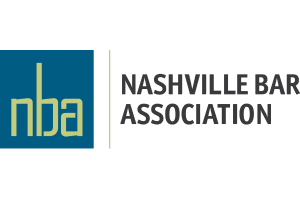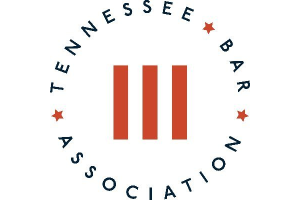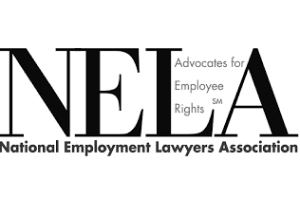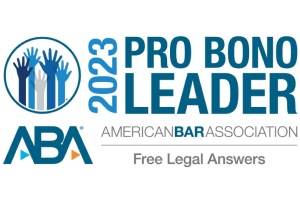for Workers
FMLA Discrimination
FMLA Lawyer in Nashville
Life is unpredictable and medical emergencies happen. The Family and Medical Leave Act (FMLA) provides employees with job-protected leave so they can seek treatment, heal, or tend to a sick loved one without risking their livelihood. If you have been discriminated against or denied benefits related to medical leave, your legal rights may have been violated.
Our experienced Nashville FMLA attorneys seek the maximum compensation possible for employees who have been discriminated against based on their medical leave.
What is the FMLA?
The Family and Medical Leave Act is a federal law that provides eligible employees with up to twelve weeks of leave during any 12 month period because of a serious health condition that makes the employee unable to perform the functions of his or her job. 29 U.S.C. § 2612(a)(1)(D). To be eligible for leave under the FMLA, an employee must meet the following criteria:
- Work 1,250 hours during the 12 months prior to the start of leave
- Work at a location where 50 or more employees work at that location or within 75 miles of it (including full-time, part-time, temporary, and seasonal employees, and, sometimes, employees of affiliated companies)
- Have worked for the employer for 12 months (within the past seven years, does not have to be consecutive)
Common Reasons for Taking FMLA
- A serious health condition makes you unable to perform the functions of your job
- Birth of a child and to bond with the newborn child within one year of birth
- To care for and to bond with an adopted child within one year of placement
- To care for your spouse, child, or parent who has a serious health condition
- Military leave exigencies such as changing child care arrangements, attending military ceremonies and events, spending time with a military member on Rest and Recuperation leave during deployment, etc.
What Is a Serious Health Condition Under the FMLA?
A serious health condition under the law is an illness, impairment, or physical or mental condition that involves inpatient care or continuing treatment by a health care provider. The FMLA does not apply to routine medical examinations, such as a physical, or to common ailments such as upset stomach. A serious health condition prevents an employee from performing any of the essential functions of the employee’s position. Some examples may include the following:
- Inpatient Care (overnight stay in a hospital, hospice, or residential medical care facility)
- Continuing Treatment by a Health Care Provider
- Pregnancy (including prenatal care)
- Chronic Conditions (diabetes, asthma, migraine headaches, etc.)
- Permanent or Long-Term Conditions (cancer, Alzheimer’s, MS, etc.)
- Conditions Requiring Multiple Treatments (surgery after accident)
How Do I Qualify for Leave Under the FMLA?
To be eligible for medical leave under the law, your employer must employ at least 50 employees at your worksite or within 75 miles of your worksite. The number of employees may include employees of an affiliated company who operates jointly with your employer. Public employers are covered regardless of the number of employees.
Also, you must have worked for your employer for 12 months (does not have to be continuous) and worked at least 1,250 hours (about 24 hours per week, on average) within the preceding 12 months to be eligible for FMLA leave.
Importantly, you must follow your employer’s procedure for requesting FMLA leave, especially if your employer uses a third-party FMLA administrator. If your human resources department states you need to contact X company about FMLA leave, then you should do so immediately.
Legal Claims Under the FMLA
There are two primary types of legal claims under the FMLA: (1) Interference and (2) Retaliation.
1. FMLA Interference
FMLA interference occurs when an employer tries to stop or discourage an employee from taking or trying to take FMLA leave. Although employers are prohibited from interfering with or denying any right owed under the law, many employers try to avoid their legal obligations by wrongfully denying benefits owed to workers under the law.
Our Nashville FMLA lawyers fight on behalf of employees who have been retaliated against because of their medical leave.
Common examples of FMLA Interference may include:
- Discouraging employees from using FMLA leave
- Changing an employee’s work schedule to avoid FMLA obligations
- Refusing to authorize FMLA leave for eligible employees
- Counting FMLA leave as an absence under attendance policies
- Reinstating an employee to a lesser position
- Changing an employee’s work location or shift after she returns from leave
- Otherwise using an employee’s FMLA leave as an adverse factor in employment decisions such as promotions, pay raises, or disciplinary actions
Proving FMLA Interference
Most employees do not have direct evidence that an employer intentionally inferred with their FMLA rights. An example of direct evidence would be if your supervisor said, “I’m firing you because of your request for FMLA leave!” Not many employers are dumb enough to say such a thing. As such, most FMLA claims are proven with circumstantial evidence.
To establish a prima facie case of FMLA interference, an employee must show that: (1) he was an eligible employee; (2) the defendant was a covered employer under the FMLA; (3) he was entitled to take leave under the FMLA; (4) he notified his employer of his intent to take leave; and (5) the employer denied him benefits or rights to which he was entitled under the FMLA. Demyanovich v. Cadon Plating & Coatings, L.L.C., 747 F.3d 419, 427 (6th Cir. 2014).
If an employer takes an adverse employment action at least in part because an employee requested or took FMLA leave, the employer has denied an FMLA benefit. Adverse employment actions may include one or more of the following actions:
- termination
- demotion
- pay cut
- eliminating or reducing job responsibilities
- denied a pay raise
- passed over for promotion
However, an employee must show that she was harmed by the denial of benefits. This means that an employee, who at the end of the 12 week leave period, is unable to perform an essential function of her position because of a physical or mental condition has no right to restoration to another position under the FMLA. 29 C.F.R. § 825.216(c). In other words, when an employee is unable to work at the end of the leave period, she has not been denied any benefit even if her employer denied her request for leave. Cehrs v. Ne. Ohio Alzheimer’s Research Ctr., 155 F.3d 775, 784-85 (6th Cir. 1998). Importantly, neither application for nor receipt of social security disability benefits is by itself conclusive evidence that an individual is completely incapable of working. Verhoff v. Time Warner Cable, Inc., 299 F. App’x 488, 497-98 (6th Cir. 2008) (holding claims for SSDI benefits are not inherently inconsistent with FMLA interference claim).
2. FMLA Retaliation
FMLA retaliation occurs when an employer fires or discriminates against you for exercising your FMLA rights. Our firm’s Nashville-based FMLA lawyers are dedicated to representing everyday workers in disputes with their employers.
Common examples of FMLA retaliation may include:
- Counting FMLA leave as an absence under attendance policies
- Terminating an employee shortly after returning from protected medical leave
- Denying a promotion to an employee who otherwise would have been promoted
- Cutting an employee’s pay or benefits after the employee requests medical leave
- Reinstating an employee to a lesser position
- Changing an employee’s work location or shift after she returns from leave
- Otherwise using an employee’s FMLA leave as an adverse factor in employment decisions such as promotions, pay raises, or disciplinary actions
Upon returning from protected medical leave, an employer has a legal duty to restore an employee to the same or an equivalent position, meaning the same pay, benefits, and other employment terms and conditions including shift and location.
Proving Retaliation Under the Family and Medical Leave Act
Most employees do not have direct evidence of unlawful retaliation. An example of direct evidence would be if your supervisor said, “I’m firing you because of your FMLA leave!” Not many managers are dumb enough to say such a thing. As such, most retaliation claims are proven with circumstantial evidence.
To establish an FMLA retaliation claim based on circumstantial evidence, a plaintiff must show: (1) she availed herself of a protected right under the FMLA; (2) she suffered an adverse employment action; and (3) there was a causal connection between the adverse action and protected activity. Wallner v. J.J.B. Hilliard, W.L. Lyons LLC, 590 F. App’x 546, 551 (6th Cir. 2014).
An FMLA retaliation claim requires the employee to show an adverse employment action, which may include one or more of the following actions:
- termination
- demotion
- pay cut
- eliminating or reducing job responsibilities
- denied a pay raise
- passed over for promotion
To create a legal connection between the protected leave and the adverse action, an employee can point to several pieces of evidence. For example, if the adverse action occurred soon after the employee requested or returned from leave, this suggests the protected leave was considered by the employer in its decision-making process. This is known as close “temporal proximity.” The starting point used in calculating temporal proximity may be the date the employee requested FMLA leave or the date the employee returned from FMLA leave. Id. at 554.
An employee alleging FMLA retaliation must also show that her FMLA leave request or usage was a motivating factor in the employer’s adverse employment decision. In other words, if the employer’s decision was based on both lawful and unlawful reasons, then the employer may still be held legally responsible.
An employer can avoid liability in some circumstances by showing it would have made the same employment decision even if the employee’s FMLA leave was not taken into account. For example, if the employer made its final termination decision before the employee requested FMLA leave, then this is strong evidence that the company would have made the same decision regardless of the employee’s FMLA leave.
How Much Is an FMLA Case Worth?
Each case is different and the exact value varies depending on the facts, evidence, and claims. However, employees whose FMLA rights are violated are generally entitled to significant damages, including:
- Lost Back Pay: Back pay includes your wages, salary, and benefits you lost as a result of your wrongful termination. This amount is calculated from the date of your termination to when your case is decided by a jury.
- Lost Front Pay: Front pay is like back pay except it anticipates your lost earnings and benefits into the future due to the employer’s unlawful actions. This amount is calculated from the date of judgment until a time period determined by the judge or jury.
- Liquidated Damages: Liquidated damages are presumed under the FMLA and is awarded in an amount equal to your lost back pay and front pay.
- Attorney’s Fees and Costs: If you go to trial and win, you may also receive your attorney’s fees and costs, which often accrues well into six figures.
What Is the Statute of Limitations Under the FMLA?
Claims under the FMLA generally must be filed within 2 years after the alleged violations. In cases involving willful violations, this deadline is extended to 3 years. Conduct is “willful” when it is more than mere negligence, such as an employer who continues to violate the FMLA even after learning of its legal obligations. The burden is on the employee to establish a willful violation.
It’s Time To Fight Back
Our knowledgeable FMLA attorneys in Nashville fight for workers whose legal rights have been violated under federal and state law. If you were discriminated against after requesting or taking medical leave, contact us today for a free online case review.














